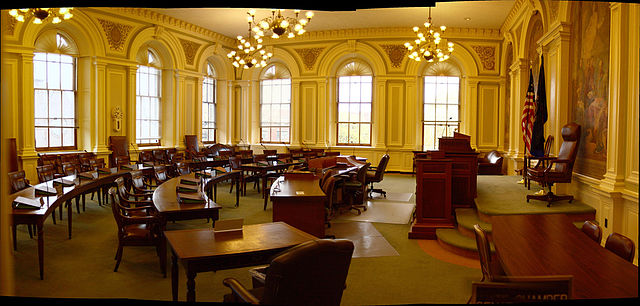Efforts to bring casino gambling to the Granite State paid off on Thursday, after a bill passed the full New Hampshire Senate at 13 votes to 10. SB 242 calls for the opening of two casinos in the state, with a total of 240 table games and 5,000 slot games between them. The bill does not specify where these casinos will be located.
Senator Lou D’Allesandro’s bill first cleared the Senate earlier this month in a 13-10 vote, but was then referred to the Finance Committee for further consideration. The Finance Committee tied 3-3 in its decision on the bill, which was then sent back to the Senate floor. As noted, SB 242 managed to attract the same numbers in its favor just before the weekend.
This is the first time that a bill calling for casino gambling in New Hampshire has passed the Senate, and as a result, it will now head to the House.
SB 242 proposes the construction of two casinos – one with a category 1 license and the other with a category 2 license.
Category 1 license:
- 80 – 160 table games
- 2,000 – 3,500 slot machines
- License will cost the operator $80 million
Category 2 license:
- 25 – 80 table games
- 750 – 1,500 slot machines
- License will cost the operator $40 million
According to supporters of the plan, there is relative urgency in the need to introduce casino gambling in the state, since both Maine and Massachusetts already operate casinos. The state would prefer keeping gambling dollars within its own borders. The New Hampshire Lottery Commission believes that the new casinos would bring in more than $194 million dollars in their first full year of operation (around 2021). The money generated by the new casinos would go to the host communities and neighboring towns, as well as the host county.
As in past efforts, there is a strong movement against the new proposal, as well, including opposition by the state’s Attorney General, Joseph Foster. But while opponents have been successful in their efforts to block casinos in New Hampshire in the past, the landscape has changed in the state and it may be the right moment for a change in policy.
D’Allesandro said about the new bill: “While New Hampshire has done nothing, surrounding states now have gaming entities. They advertise on our TV stations and we send buses of New Hampshire residents to those other states to gamble. It’s time for New Hampshire to do something. No state that has done this has crumbled.”
Meanwhile, in the coming weeks, a bill calling to legalize the electronic bingo game, keno, is set to go before the full Senate for a vote.



